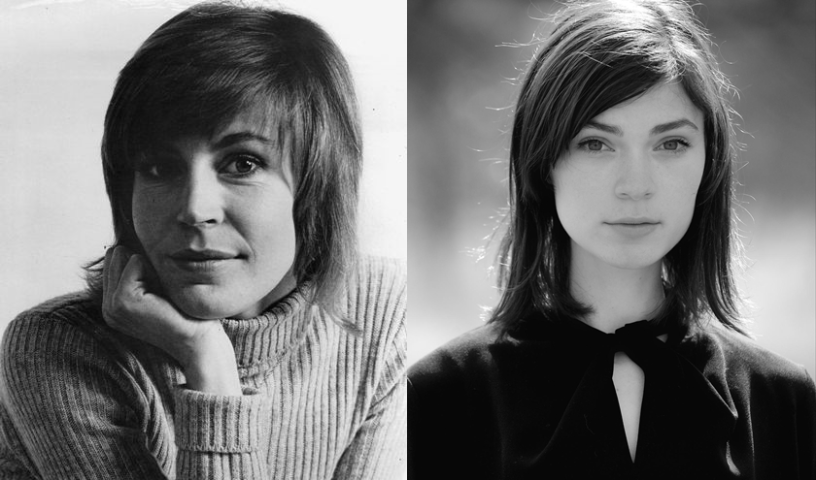Helen Reddy (l) and Tilda Cobham-Hervey.
Helen Reddy arrived in the US in the mid-1960s as a single mother at the age of 24 with $234 in her pocket after winning a recording deal.
The record company promptly told her it had enough female stars and suggested she have fun in New York and then go home.
Within a few years she had four hits in the Billboard top 10, including the totemic I Am Woman, and her own TV show.
That little known story will be chronicled in I Am Woman, the Helen Reddy biopic which Goalpost Pictures plans to shoot in Australia, Los Angeles and NY later this year.
Goalpost hired Emma Jensen (Mary Shelley) to write the screenplay, which centres on Reddy’s relationship with Lillian Roxon, the legendary rock journalist who spent 10 years as the Sydney Morning Herald’s New York correspondent.
Tilda Cobham-Hervey will play Reddy with Danielle Macdonald (Patti Cake$) as Roxon. The film will mark the narrative feature debut of Unjoo Moon, who directed The Zen of Bennett, a feature documentary set on the eve of singer Tony Bennett’s 85th birthday.
Moon’s husband Dion Beebe will be the DOP. Transmission Films is attached. Tragically Roxon died in 1973, aged 41, after suffering a severe asthma attack.
“What Helen did was extraordinary,” Goalpost partner Rosemary Blight tells IF. “It’s a great story about female friendship, it’s an aspirational story and it happened before the #MeToo movement and we’ve come clashing into that.”
Reddy, who is 76, lives in a care facility in LA. Her family has been advising the filmmakers on the project.
I Am Woman was co-written by Reddy and Ray Burton, a Sydney singer/songwriter who knew Reddy in Australia and began collaborating with her in LA.
“At the time, all around the world, Women’s Liberation groups were forming at a rapid rate and Germaine Greer seemed to flood the media talking about Women’s Liberation and equal rights while promoting her book The Female Eunuch,” Burton recalls when contacted by IF.
After hearing her views and those of her female friends on equality for women he suggested she write some lyrics which addressed that issue. A week later she give him words written on a flyer-sized sheet of paper.
He took those words, came up with what he considered was a perfect marriage of lyrics and melody and recorded a demo of the song with his vocals. Reddy and her husband Jeff Wald loved it and she recorded the song on an album for Capitol Records.
According to Burton, it wasn’t until the song was featured in the closing credits of Jackie Cooper’s 1972 movie Stand Up and Be Counted that it became a worldwide hit.



